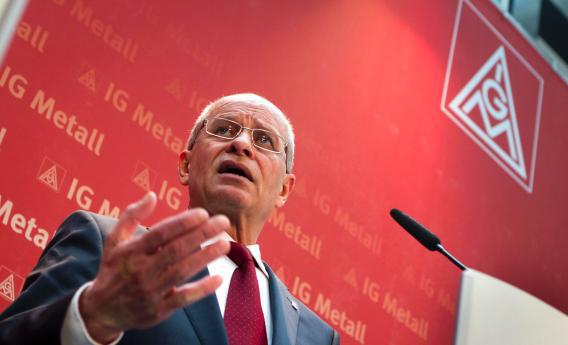Normally companies fight hard against unionization efforts but there are exceptions, and it looks like one such exception might be Volkswagen’s plant in Tennessee. Except in a slightly odd twist, the governor of Tennessee seems to be pressuring the company to take a harder line against the union. “We have heard from other folks that we’re recruiting,” he said “that that would dampen their enthusiasm with Tennessee.”
This all comes about essentially because Volkswagen is a German company.
Large German firms are heavily unionized, and labor unions are tied into German corporate governance in a much more profound way than they are at American firms even at heavily unionized industries. The system of “codetermination” means that employees are formally represented on German corporate boards. And it’s common for German firms to have what are known as “works councils”—representative vehicles through which rank-and-file employees are supposed to be able to exercise voice over what’s happening in the workplace. But when German companies come to the United States, they typically don’t carry German-style labor relations with them. On the contrary, they’ve generally flocked to southern states where wages are lower and labor law makes union organizing extremely difficult.
But Volkswagen’s existing works councils have started giving the company a hard time about the fact that there’s no works council at its Chattanooga plant. All the other VW facilities around the world have one, so they think the Chattanooga plant should have one too.
The problem for Volkswagen is that under existing American labor law, firms aren’t allowed to set up a “company union” to represent workers. If they’re going to have a works council in Chattanooga it needs to be through a whole hog independent NLRB certified labor union. And apparently they’re negotiating with the United Auto Workers about the idea of letting UAW run an uncontested unionization campaign to do just that.
Governor Bill Haslam doesn’t like this idea because, for starters, Republicans (and especially southern ones) really hate labor unions. And the risk is that if Volkswagen unionizes, then IG Metall will succeed in persuading other German manufacturers to do the same thing with their U.S.-based plants. That would be a pretty strong shot in the arm for otherwise all-but-moribund private sector labor unions in the United States. The flipside is that there’s long been some academic noodling around the idea that company unions should be allowed in the United States, but between unions who don’t like company unions and companies who don’t like unions there’s never been an actual constituency for it. This German angle might for the first time create a concrete interest group in favor of that kind of labor law reform.
